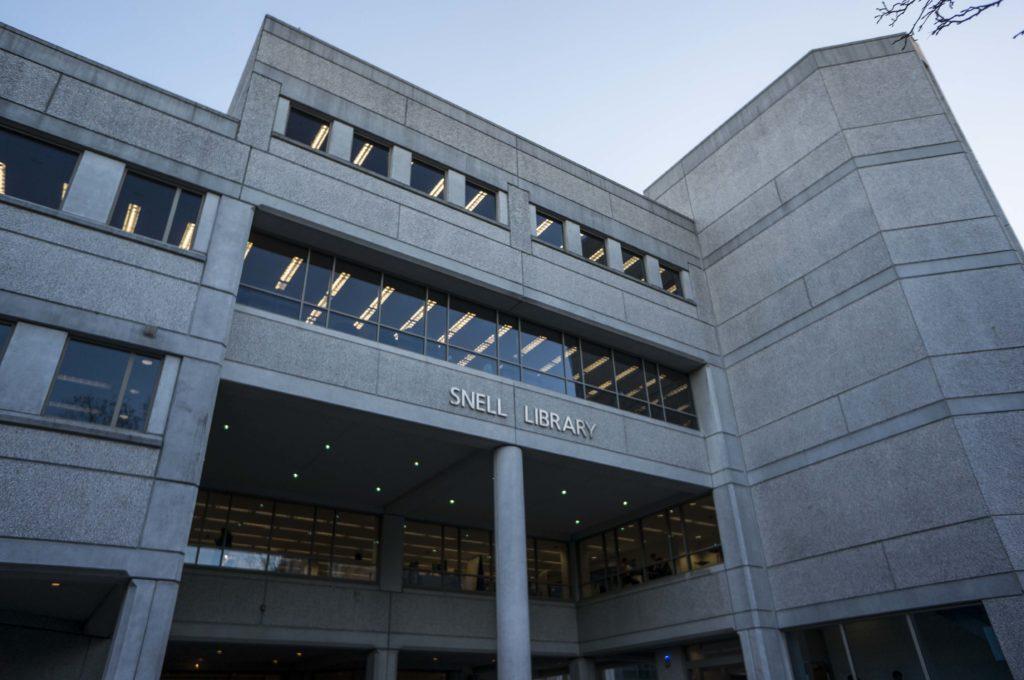Editorial: Make study spaces more accessible
Snell Library, which recently underwent a major renovation of the second floor, will likely see new projects in the future. School administrators spoke at a town hall meeting Wednesday about possible changes. News Staff Photo/Matt Greene
October 19, 2017
Deciding to study on campus should be as simple as walking into Snell Library, finding a seat and opening your books. Instead, every time you try to study on campus you’re playing a game of chance. You’re likely to spend a good portion of your time in the library taking laps and looking for somewhere to sit.
You might eye people who look like they’re just about to pack up, but with so many other people making the rounds, snagging a seat becomes a race. If you’re trying to work on a group project, the probability of finding a table that will fit all your group members is slim to none. What’s worse, when midterms and finals roll around, seats in Snell are virtually nonexistent.
It’s not as though there isn’t enough study space at Northeastern. There are hundreds of classrooms on campus and for students who are determined to find a place to study, these rooms have become makeshift study spaces. But they aren’t guaranteed.
There’s often no way of knowing if any given classroom will have a class in it when you arrive. If you do find an empty classroom, you may find yourself being kicked out sooner than you expected when a class does start. This option is unreliable for late night studying as well. Many academic buildings close in the late evening, which reduces crucial studying time for students with full schedules during the day.
There needs to be a system in place that makes it more convenient for students to get into empty classrooms when they want to study. Northeastern already keeps track of the classrooms that are in use throughout the day. Professors can use a database to see if classrooms are available for use. If this database was made available to students, finding a place on campus to study would be much easier.
Many rooms in academic buildings sit empty after regular school hours, even though there are students all over campus who would be happy to use them. If the university has safety concerns about not knowing who will be occupying the rooms, they should create a system for signing up for rooms similar to how study rooms and workstations are reserved in Snell. This will create a system of accountability and easy accessibility for students.
The university has already addressed the lack of study space for graduate students. Rebecca’s Cafe has been open after hours as a study space since the start of the semester, but this is not an available option for undergraduate students. It’s important that graduate students have this space because they have very few buildings on campus designated for them. Many work as teacher’s assistants and need to have space to grade papers in addition to doing their own work.
Undergraduates need more places to work as well. As the numbers of the incoming classes increase, there is more pressure on Snell Library to accommodate the university’s growing population. The News is looking to the university to provide its students with the study spaces they need to thrive in an academic setting.
File photo by Matt Greene







